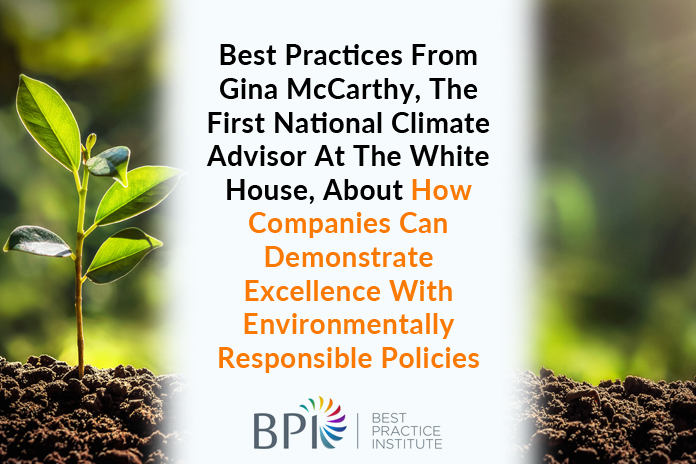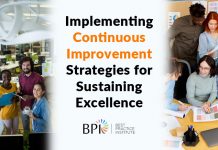In today’s rapidly evolving business landscape, achieving excellence goes beyond financial success. It encompasses a commitment to environmental responsibility, sustainability, and climate control. Gina McCarthy, the first National Climate Advisor at the White House, offers invaluable insights and best practices for companies striving to demonstrate excellence in these areas.
Let’s dive into the key takeaways from her enlightening interview on the Leader Show and explore how businesses can leverage her expertise to drive positive change.
Embracing Sustainability as a Core Business Value
Gina McCarthy emphasizes that sustainability should be more than just a corporate buzzword—it should be deeply ingrained as a fundamental value within organizations. From her extensive experience in environmental work, McCarthy underscores the importance of addressing environmental challenges, particularly climate change. She highlights the critical role of businesses in transitioning towards a sustainable future by integrating sustainability into core business strategies and decision-making processes.
Furthermore, McCarthy encourages companies to adopt a lifecycle approach to sustainability, considering the environmental impact of products and services from design to disposal. By prioritizing eco-friendly practices, such as reducing waste, conserving resources, and promoting circular economy principles, businesses can minimize their environmental footprint while maximizing long-term value.
To truly embed sustainability within organizational culture, McCarthy suggests fostering a sense of environmental stewardship among employees at all levels. By providing training, education, and incentives for sustainable behavior, businesses can empower employees to contribute to environmental initiatives and champion sustainability within their respective roles. This bottom-up approach ensures that sustainability becomes a shared responsibility and a guiding principle in day-to-day operations.
Leveraging Innovation and Technology for Climate Control
Innovation and technology are pivotal in advancing climate control initiatives within businesses. McCarthy emphasizes the need for companies to invest in clean energy technologies, energy-efficient solutions, and sustainable practices. By harnessing innovative technologies, businesses can optimize resource utilization, reduce emissions, and mitigate the impacts of climate change.
Moreover, McCarthy advocates for developing collaborative platforms and knowledge-sharing networks to facilitate the exchange of best practices and emerging technologies among industry peers. By fostering a culture of innovation and collaboration, businesses can accelerate the adoption of sustainable solutions and drive collective progress towards environmental goals.
Additionally, McCarthy highlights the importance of leveraging data analytics and predictive modeling to inform decision-making and optimize resource allocation. By analyzing environmental data and identifying areas for improvement, businesses can implement targeted interventions to enhance efficiency, reduce waste, and achieve measurable environmental outcomes. This data-driven approach enables companies to track progress, measure impact, and continuously refine their climate control strategies.
Businesses can also explore innovations such as carbon capture and utilization (CCU) and renewable energy storage solutions. Carbon capture technologies allow companies to capture and store carbon dioxide emissions from industrial processes, reducing their carbon footprint. Furthermore, renewable energy storage solutions, such as battery storage systems and hydrogen fuel cells, enable businesses to store renewable energy for later use, ensuring a reliable and resilient energy supply.
McCarthy emphasizes investing in research and development (R&D) to drive continuous innovation in climate control technologies. By allocating resources to R&D efforts, businesses can stay at the forefront of technological advancements and develop cutting-edge solutions to address evolving environmental challenges. Collaborating with academic institutions, research organizations, and technology startups can provide access to diverse expertise and accelerate the pace of innovation in the field of climate control.
Moreover, businesses can leverage emerging technologies such as artificial intelligence (AI) and machine learning (ML) to optimize energy efficiency and enhance predictive modeling capabilities. AI-powered algorithms can process large datasets to identify patterns, optimize energy consumption, and identify opportunities for efficiency improvements. Using AI, businesses can unlock new insights, automate processes, and drive continuous improvement in climate control strategies.
Engaging Stakeholders for Collective Impact

Effective stakeholder engagement is essential for driving collective impact and a culture of environmental responsibility within organizations. McCarthy underscores the importance of engaging with employees, customers, suppliers, and communities to promote sustainability initiatives and garner support for climate action.
McCarthy highlights the power of storytelling and communication in engaging stakeholders and inspiring action. By sharing success stories, highlighting the tangible benefits of sustainability efforts, and soliciting stakeholder feedback, businesses can build trust, foster collaboration, and amplify the impact of their sustainability initiatives.
Furthermore, McCarthy encourages businesses to seek partnerships and collaborations with NGOs, academia, and government agencies to leverage complementary expertise and resources. By aligning efforts and pooling resources, stakeholders can amplify their collective impact, address systemic challenges, and drive meaningful change at scale. It fosters a sense of shared ownership and accountability, laying the foundation for sustainable and inclusive solutions.
Prioritizing Environmental Justice and Equity
In pursuing excellence in environmental responsibility, companies must prioritize environmental justice and equity. McCarthy highlights the disproportionate impacts of climate change on disempowered communities and emphasizes the need for inclusive and equitable solutions.
By investing in initiatives that promote social equity, support vulnerable communities, and advance environmental justice, businesses can uphold their commitment to excellence in sustainability while fostering a more just and equitable society. McCarthy’s involvement in Track 2 discussions between the U.S. and India underscores the importance of global collaboration in addressing environmental challenges.
Moreover, McCarthy advocates for integrating equity considerations into decision-making processes and policy development. By centering equity in sustainability strategies, businesses can ensure that environmental benefits are equally distributed and that environmental harms do not disproportionately burden marginalized communities. This proactive approach fosters resilience, inclusivity, and social cohesion, laying the groundwork for sustainable and equitable development.
Final Word: Excelling in Environmental Responsibility
Gina McCarthy’s insights offer valuable guidance for businesses seeking to demonstrate excellence in environmental responsibility. By embracing sustainability as a core business value, leveraging innovation and technology, engaging stakeholders, and prioritizing environmental justice, companies can lead toward a more sustainable and resilient future.
Incorporating Gina McCarthy’s wisdom into business practices can drive positive environmental outcomes, enhance brand reputation, foster innovation, and secure long-term success. As businesses look to overcome the challenges and avail opportunities of the 21st century, prioritizing environmental responsibility is not just a moral imperative—it’s a pathway to excellence in business, as exemplified by Excellence 1000 Index companies.Learn more about the Excellence 1000 Index and discover how your business can excel in environmental responsibility: https://excellence.bestpracticeinstitute.org/#










